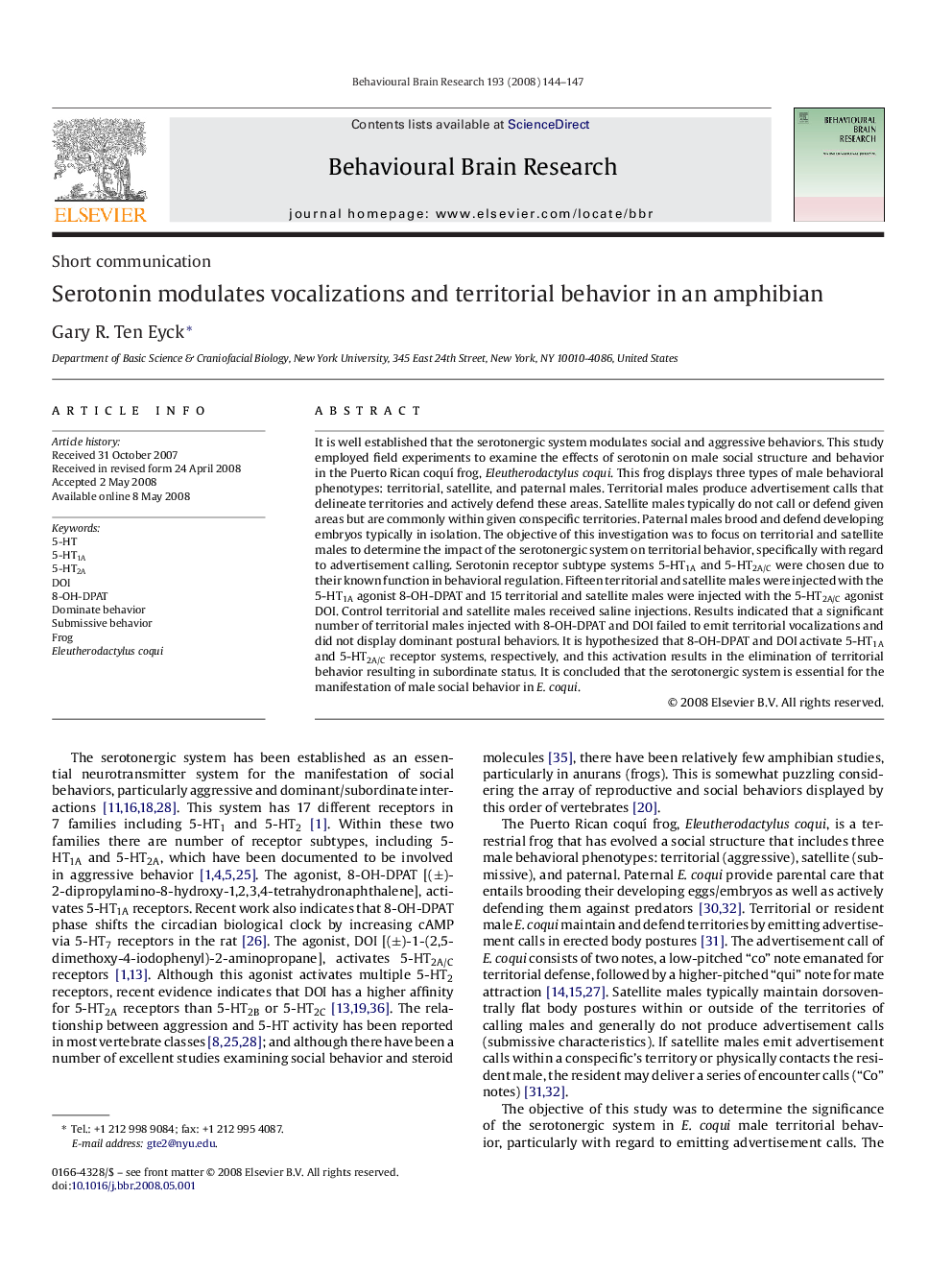| Article ID | Journal | Published Year | Pages | File Type |
|---|---|---|---|---|
| 4315155 | Behavioural Brain Research | 2008 | 4 Pages |
It is well established that the serotonergic system modulates social and aggressive behaviors. This study employed field experiments to examine the effects of serotonin on male social structure and behavior in the Puerto Rican coquí frog, Eleutherodactylus coqui. This frog displays three types of male behavioral phenotypes: territorial, satellite, and paternal males. Territorial males produce advertisement calls that delineate territories and actively defend these areas. Satellite males typically do not call or defend given areas but are commonly within given conspecific territories. Paternal males brood and defend developing embryos typically in isolation. The objective of this investigation was to focus on territorial and satellite males to determine the impact of the serotonergic system on territorial behavior, specifically with regard to advertisement calling. Serotonin receptor subtype systems 5-HT1A and 5-HT2A/C were chosen due to their known function in behavioral regulation. Fifteen territorial and satellite males were injected with the 5-HT1A agonist 8-OH-DPAT and 15 territorial and satellite males were injected with the 5-HT2A/C agonist DOI. Control territorial and satellite males received saline injections. Results indicated that a significant number of territorial males injected with 8-OH-DPAT and DOI failed to emit territorial vocalizations and did not display dominant postural behaviors. It is hypothesized that 8-OH-DPAT and DOI activate 5-HT1A and 5-HT2A/C receptor systems, respectively, and this activation results in the elimination of territorial behavior resulting in subordinate status. It is concluded that the serotonergic system is essential for the manifestation of male social behavior in E. coqui.
